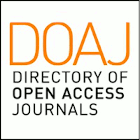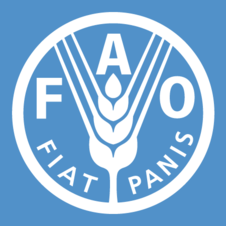ANÁLISIS DEL NIVEL DE INGLÉS DE FUTUROS LICENCIADOS EN NUTRICIÓN DE LA FACULTAD DE SALUD PÚBLICA Y NUTRICIÓN EN EL CURSO COMPETENCIA COMUNICATIVA EN INGLÉS
Abstract
Introducción: El dominio del inglés resulta significativo para competir en el mercado laboral en el área de la salud. Por ello, las universidades contemplan en sus planes de estudio la competencia de comunicación en inglés. Objetivos: Describir los resultados de un estudio sobre el análisis del nivel de inglés de futuros licenciados en nutrición en el curso de competencia comunicativa de la Facultad de Salud Pública y Nutrición de la Universidad Autónoma de Nuevo León, durante el semestre agosto-diciembre 2015. Métodos: Estudio descriptivo, transversal. Participaron 150 estudiantes de cuatro grupos, se les aplicó un cuestionario con 12 ítems divididos en tres secciones. Resultados: En el área personal se encontró que el 72.7% depende económicamente de sus padres, el 69.3% se traslada a estudiar principalmente en transporte público. En el área académica se observa que más del 90% posee computadora propia y tiene acceso a internet desde casa; y sólo el 55.6% cursa la unidad de aprendizaje en el semestre programado en la carrera. Referente a la experiencia en el idioma, el 40.1% ha estudiado inglés extracurricularmente, solamente el 25.8% considera tener un nivel intermedio o avanzado y únicamente el 15.9% ha obtenido una calificación ≥ 50 puntos en el Examen de Competencia en Inglés (EXCI), requisito para titulación. Conclusiones: Lo anterior permite conocer el perfil de los estudiantes que llegan a este curso y buscar las estrategias e implementación de acciones para fomentar y motivarlos a aprender inglés durante su formación universitaria o incluso antes de iniciarla.
ABSTRACT
Introduction English proficiency is relevant to compete in the job market on the healthcare field. Thus, most universities consider in their curricula a communicative competence course in English. Objectives: To describe the results of a study on the analysis of English proficiency of future nutritionists enrolled in the communicative competence course at the Faculty of Public Health and Nutrition, at Universidad Autonoma de Nuevo Leon, in the period August-December 2015. Methods: Descriptive, cross sectional study. A questionnaire divided into three sections was applied to 150 students. Results: In the personal area it was found that 72.7% of students are financially dependent on their parents, 69.3% of students commute by public transportation. In the academic area, over 90% of students own a personal computer and have access to Internet at home; only 55.6% of students take this subject in the scheduled semester in the curricula. In the matter of experience with English, 40.1% of students have studied this language off their academic training; 25.8% of the students place their English proficiency in an intermediate-advanced level and just 15.9% of the students have passed the institutional Communicative Competence English Test (EXCI) required to obtain their bachelor degree. Conclusions: These results show the students’ profile that get enrolled in the “Communicative Competence in English” class. In addition, it helps to look for strategies to apply actions in order to motivate and persuade students to learn this language along their studies at college or even before, they start it.
Palabras Clave:nivel de inglés, licenciados en nutrición, competencia comunicativa en inglés,English proficiency, bachelor degree in nutrition, communicative competence in English.
Downloads
Downloads
Published
How to Cite
Issue
Section
License
The rights of the work belong to the author or authors, however, by sending it for publication in the Public Health and Nutrition Magazine of the Faculty of Public Health and Nutrition of the Autonomous University of Nuevo León, they grant the right for its first publication in between electronic, and possibly, in print to the Public Health and Nutrition Magazine. The license used is the Creative Commons attribution, which allows third parties to use what is published whenever the authorship of the work is mentioned and the first publication that is in the Public Health and Nutrition Magazine. Likewise, the author or authors will take into account that it will not be allowed to send the publication to any other journal, regardless of the format. The authors will be able to make other independent and additional contractual agreements for the non-exclusive distribution of the version of the article published in the Public Health and Nutrition Magazine (e.g., institutional repository or publication in a book) provided they clearly state that The work was published for the first time in the Public Health Magazine, Magazine of the Faculty of Public Health and Nutrition of the Autonomous University of Nuevo León.










